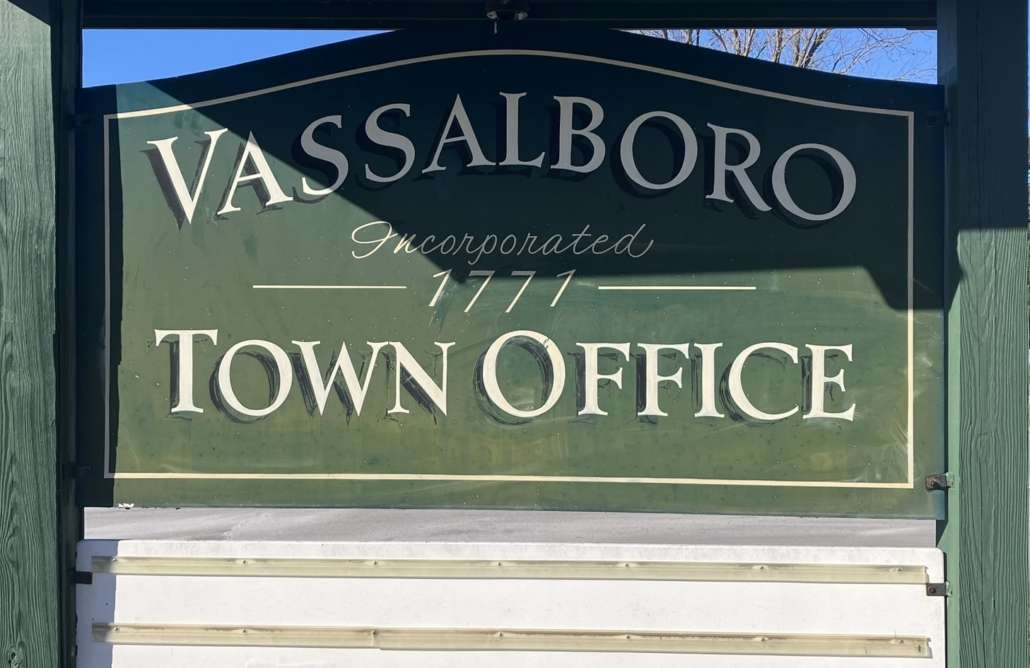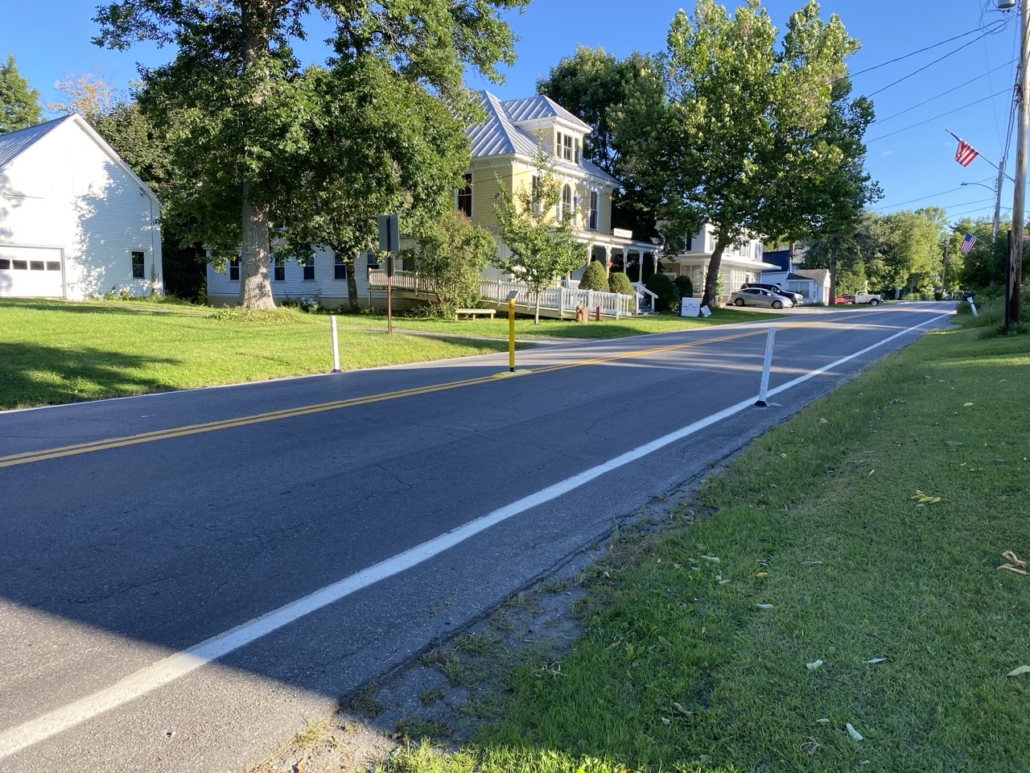Vassalboro planners approve CMP shoreland permits to rebuild transmission line
 by Mary Grow
by Mary Grow
Vassalboro Planning Board members had two agenda items at their Sept. 3 meeting.
They were not asked to act yet on Revision Energy’s revised plan for a solar farm on Webber Pond Road. It will probably be on the board’s Oct. 1 agenda.
They approved Central Maine Power Company’s application for shoreland permits needed to rebuild its north-south transmission line through Vassalboro.
Mike Banaitis, of Freeport-based POWER Engineers, consultant to CMP’s parent company, Avangrid, and Deborah Turcotte, an Avangrid outreach specialist, explained the project history.
In February 2020, the company got planning board approval to replace poles between the Augusta line and the McCoy’s Crossing substation at the intersection of Bog and Cross Hill roads.
New regulations delayed the work. Now, the company has expanded the project to run the rest of the way north through Vassalboro to a Winslow substation, a total of 22.8 miles.
A hand-out Banaitis distributed says the new line replaces one built in 1920. The new poles will be within the existing right-of-way, but not necessarily on the center line.
A map in the hand-out shows the line entering southern Vassalboro near Church Hill Road, going along the west side of Webber Pond and, farther north, the west side of Outlet Stream and entering Winslow just west of Route 32.
There will be minimal tree-cutting, mostly removal of dead or hazardous trees. The new poles will be “slightly taller steel monopoles” except on roadsides, where wood will replace wood.
In addition to the Vassalboro Planning Board permit, the project needs two other permits, Banaitis said. He has obtained a state Department of Environmental Protection permit; when the Army Corps of Engineers permit, expected this fall, is received, a copy will be sent to the town.
The current plan calls for preliminary construction steps to begin this November. The work is expected to take from 12 to 18 months.
Planning board members had a few questions, but no major concerns. Approval was unanimous.
ReVision Energy spokesman Annalise Kukor said after the company’s initial presentation in November 2023 and a discussion with abutting landowners, the plan for a solar development at 1026 Webber Pond Road was amended.
In February of this year, she presented a preliminary revised plan, to which board members did not object. She now plans to present a final plan.
ReVision has not started any work on the property, she said. A Webber Pond Road resident had questions about a solar farm under construction; that one is separate from and north of ReVision’s, Kukor said.
The next regular Vassalboro Planning Board meeting is scheduled for Tuesday evening, Oct. 1.









 To the editor:
To the editor: